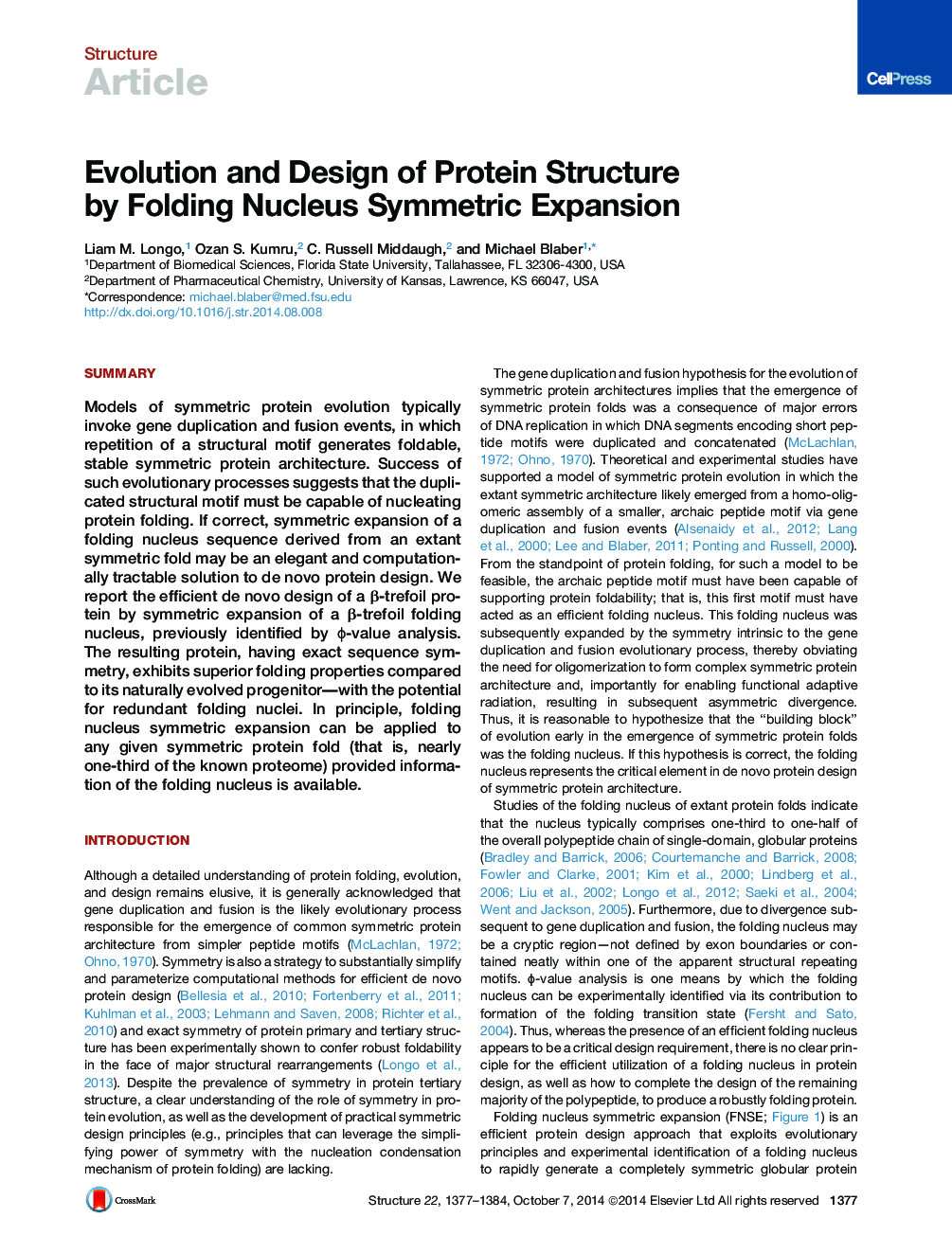| Article ID | Journal | Published Year | Pages | File Type |
|---|---|---|---|---|
| 2029680 | Structure | 2014 | 8 Pages |
•A folded β-trefoil protein was designed by symmetric expansion of a folding nucleus•The β-trefoil protein is more stable, less aggregation prone, than its progenitor•Folding nucleus symmetric expansion (FNSE) is an efficient approach to protein design•FNSE may be applied to any symmetric protein fold (∼one-third of known architectures)
SummaryModels of symmetric protein evolution typically invoke gene duplication and fusion events, in which repetition of a structural motif generates foldable, stable symmetric protein architecture. Success of such evolutionary processes suggests that the duplicated structural motif must be capable of nucleating protein folding. If correct, symmetric expansion of a folding nucleus sequence derived from an extant symmetric fold may be an elegant and computationally tractable solution to de novo protein design. We report the efficient de novo design of a β-trefoil protein by symmetric expansion of a β-trefoil folding nucleus, previously identified by ɸ-value analysis. The resulting protein, having exact sequence symmetry, exhibits superior folding properties compared to its naturally evolved progenitor—with the potential for redundant folding nuclei. In principle, folding nucleus symmetric expansion can be applied to any given symmetric protein fold (that is, nearly one-third of the known proteome) provided information of the folding nucleus is available.
Graphical AbstractFigure optionsDownload full-size imageDownload high-quality image (514 K)Download as PowerPoint slide
